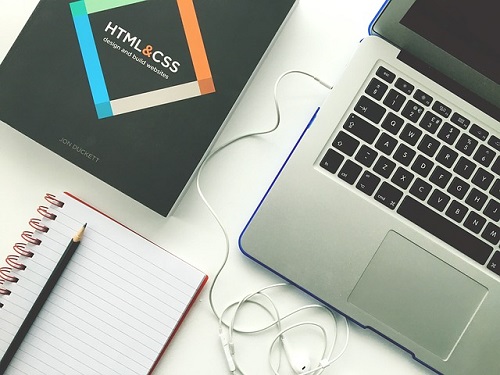Of all the forms of tech startup, web design is perhaps the easiest to get into, and the most sought after by other businesses. It’s a business that can be conducted entirely online, with limited startup costs and substantial crossover with both creative and technical fields. This is not to say it’s easy - no new business is - but for many people, starting a web design business is the perfect change of career.
With the ability to start producing websites from your bedroom, you might not have thought about the possibility of starting a web design business in France, or another far-flung location. Yet when it comes to scaling your business up from those humble origins - or starting at a slightly higher level - France offers the perfect environment for talent, incentives and further opportunities. Here are just a few tips on how to make the leap to La French Tech.
Find a location
As a predominantly online business, you may think that the location of your French web design business is of little importance, but this couldn’t be further from the truth. Your primary focus should be on finding a location with the best possible internet connectivity, and this can be easier said than done in France. While the country’s broadband infrastructure is improving, it still lags behind many of its European neighbours, let alone world leaders like South Korea and Singapore.
Internet connectivity will be absolutely vital to the efficient and successful running of your business. You will need to upload files via FTP for the websites you build, as well as sending files to your clients. While most modern websites are extremely light to boost load times, increasing internet speeds are leading us back to more complex, video-heavy designs. It’s also likely that you’ll be sent numerous source files for videos and photos which you will have to compress yourselves before putting them in situ.
Related article: Start A Business In France in 8 Steps
The location of your French web design business is also important in regards to local talent and other business infrastructure. The La French Tech initiative is something we’ll get into in further detail below, but for the purposes of this section, it’s important to know that France has a number of designated ‘tech cities’. These hubs were the nucleus for what is now a wide-reaching startup ecosystem, with co-working spaces, funding schemes and other help for startups in these cities. They also tend to have good internet connectivity, so this list is a good place to start when choosing your new home.
Finally, the location of your new business is important for finding new talent. While you will benefit from everything the whole of France has to offer - namely being at the heart of the EU, and thus having free movement of talent - you may want to hire local to start with. Local talent is not only likely to be cheaper, but may also give you an immediate insight into the local business environment, and cultural differences that may exist between France and your home country. Look for cities with relevant college and university courses for your web design agency, and see if you can attract these talented individuals before they flock to bigger European cities.
Web design vs web development
The line between design and development has become more blurred over time, but it’s important to know the difference, and where your focus will lie. In theory, web design refers more to the look and the user experience of a website, combining both form and function. Web development is about the nuts and bolts of a website, creating something that conforms to a good design and making that design work in practice.
While some people and businesses appreciate this difference, you will likely find that many people come to you expecting the complete package. As such, you will either have to possess all of these skills in-house, or contract out elements of your work to qualified freelancers. It is more than feasible to start a web design business in France by yourself, but you will need both the technical ability to code the site and the design expertise to make it look appealing, and it’s rare that people possess both.
Related article: How to choose a website builder for your new business
More likely, you may look to employ people or contract out the bits you’re less comfortable doing. The problem with contracting work out is that your entire business is contingent on both the ability and reliability of people outside the business. If you are a frontend developer and you contract out work to a backend developer, only they will be able to field questions about the user interface of the website, and only they will be able to fix problems. This can very easily cause chaos when scheduling conflicts occur, or if you part ways and someone else has to assume their work, and learn the idiosyncrasies of their coding.
Both scenarios also present the issue of not being familiar with some of the work you are doing as a business, and therefore not being able to talk about it with confidence, or recognise the objective quality of the work. As such, many web designers will look to train themselves up in both areas, and start by taking on small projects that are within their comfort zone. By building up to bigger projects, you can scale the business over time, while also feeling more confident in your ability to sell the product and cover for any lapses.
 Consider your business structure
Consider your business structure
Your French company structure is going to depend almost entirely on whether you intend to work by yourself, or whether you will be employing people. If you’re planning to start your web design agency as a home business, you may choose to form as a Micro Entreprise. This structure does not require that you pay corporation tax or VAT, and does not usually require the services of an accountant. However, you are also unable to claim any business expenses, and the turnover limit for services (which applies to web design) is only €32,900.
Related article: What's the difference between a SARL, SAS, SA, EURL & Micro-Entreprise?
More likely is that you’ll choose to form as a SARL. The SARL company structure has no turnover limit, with a rate of either 15% or 33% corporation tax depending on your turnover and profits. SARLs can both charge and recoup VAT, and can deduct business expenses. However, they will also require the service of an accountant, which will cost on average around €2000 each year. A Micro Entreprise will have to ‘upgrade’ to a SARL if it exceeds the threshold, however, so you may choose to start there depending on your initial revenue projections.
Reap the benefits of La French Tech
La French Tech is a government-backed scheme to boost the visibility and funding of French tech startups, both in France and foreign territories like Quebec. Since its inception in 2013, La French Tech has inaugurated 13 ‘French Tech Centres’ in cities across the country, and has seen France send the largest foreign delegation to the Consumer Electronics Show for four years in a row. With the digital economy at the heart of President Emmanuel Macron’s plans, it continues to play a key role in France’s development.
The 13 cities and regions with French Tech Centre status all feature tech incubators and accelerators, all have schemes and systems in place to help entrepreneurs, and all boast multiple startups who’ve successfully raised a large amount of capital. They are:
- Aix-Marseille
- Bordeaux
- Grenoble
- Lille
- Lyon
- Montpellier
- Nantes
- Rennes
- Toulouse
- Brest
- Normandy
- Nice
- Lorraine
There are also four cities with thematic accreditations, pointing to expertise in certain industries:
- Saint-Étienne for design
- Angers for industry
- Avignon for culture
- Alsace for sciences
La French Tech represents a movement as much as a formal scheme. France has upped its game when it comes to startup funding, with the public investment bank BpiFrance investing €2.7 billion in 2017 into French startups, and recently earmarking a further €10 billion specifically for tech startups. The Parisian startup space and incubator Station F – the biggest startup hub in the world covering 366,000 square feet - has also proved extremely popular, with tenants including Microsoft, Google and Facebook.
Related article: How Station F Shrugged Off France’s Bad Business Reputation
If you’re coming from the UK, it’s also worth considering the benefits of simply living and operating in France. As well as the gorgeous scenery and wonderful food, you’ll be at the heart of the European Union, with everything that entails (including being out of any Brexit chaos which is likely to ensue over the next few years). For your business, that will include simple payment of cross-border sales tax, and the ability to hire and retain talent from across the continent. For a web design agency in particular, where salaries tend to be higher than average, this could save you money and the hassle of visas if you want your employees to be in-office.
These are just a handful of important tips to consider when starting a web design agency in France, rather than a formal guide. For that, you should check out our brochure below on starting a business in France. Or for more help and advice on opening your business in France , opening a bank account , or finding an accountant, contact the Euro Start Entreprises team through our contact page or call 0033 (0)1 53 57 49 10.







